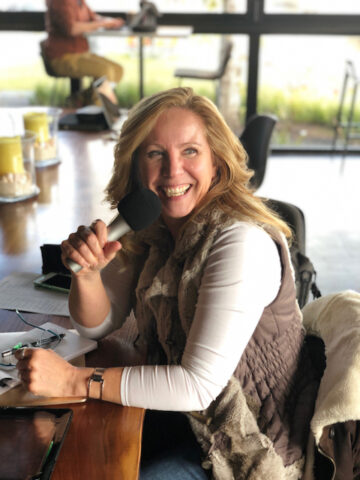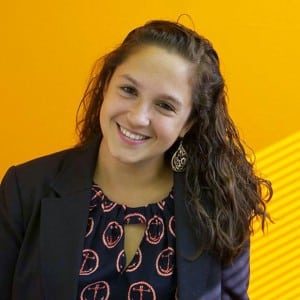
Home » Lessons on leadership: Tri-City business podcasts offer advice, wisdom
Lessons on leadership: Tri-City business podcasts offer advice, wisdom

September 12, 2019
Need inspiration and guidance on how to be a better performing leader? Look no further than Tri-City business podcasts.
Business and leadership coach Paul Casey has produced “Tri-Cities Influencer” for more than a year and a half now. In his podcasts, he interviews chief executive officers, nonprofit executives and entrepreneurs to hear how they lead themselves and their teams.
“I ask them questions like, ‘How do you organize your time? How do you embrace change? And how do you lead and motivate your team?” Casey said. “It’s 10 different questions every episode.”
He has interviewed Preston House, the Tri-City franchise owner of Papa John’s Pizza, LoAnn Ayers, president and CEO of United Way of Benton and Franklin Counties, and Michael Novakovich, president and CEO of Visit Tri-Cities.
“Tri-Cities Influencer” has been downloaded by 3,200 unique listeners.
Casey has completed 30 episodes.
He records at Fuse SPC’s podcast studio, which is a perk of membership at the Richland coworking space.
Brandon Andersen of Bonsai Audio helps Casey edit and produce the podcasts.
“I usually record two a month, back-to-back, but they won’t be released for another two or three months, which means I usually have six or seven waiting to be released,” Casey said.
Casey said the podcasts were inspired by similar recordings done by leadership author John Maxwell. Casey already had a habit of scheduling lunches with local leaders, and he decided to turn them into podcasts, so everyone could benefit from the nuggets of wisdom shared, Casey said.
“It fits in line with my business vision and mission,” Casey said. “It’s an arm of my business and my brand and my work coaching, speaking, team-building and masterminding.”

Lara Currie, another local business coach, aims to help people manage difficult and emotional conversations in high-stress environment in her podcast, “Difficult Happens: Effective Communication for Bosses.”
She’s been producing it for two years; it has a global reach and about 2,700 downloads a month. She rotates the format of her podcasts between solo episodes, live coaching calls, and interviews with other leaders and professionals in high-stress fields.
She recommends first-time listeners listen to episode 73, “Passive Aggressive Behavior and How to Combat It,” episode 64, “When Women Bully Women,” and episode 59, “New OSHA regulations for Toxic Behavior in the Workplace.”
“Right now I am doing a series on manipulative behaviors and how to combat it,” Currie said. “I have another one on personality assessments, like the Strengths Finder and the Enneagram and how they can help you, but also are completely useless.”
Currie said podcasts can be a great way for business owners to position themselves as leaders and experts in their field. But consistency is key, she said. It also takes dedication.
“I have tried several podcast producers, but it wasn’t for me. It wasn’t what I wanted, so I did a lot of Googling and got in a lot of calls to friends who were doing it as well, and now I have my process and procedures dialed in a bit,” Currie said.
Her podcasts have generated potential customers from Turkey, Australia and Germany.
“It’s made my reach global and helped cement my authority in this field,” she said.
Currie, who also is a motivational speaker, said her podcast serves as her résumé for generating future speaking engagements.
Currie said podcasts can be as informal or professional as you want—it just comes down to your brand.
“There are basically three or four levels of podcasts,” Currie said. “The first level is you in your car with your iPhone and earbuds recording yourself talking and uploading raw audio. Anyone can do that.”
But, she said, to be really successful, podcasters need to think about what they’re going to say, and plan an intro, outro and a call to action.
“The next step up from that is to edit it to create professional graphics, remove popping sounds and dead air and make sure the audio is consistent,” Currie said.
Promotion and marketing are key, Currie said.
Although, she does most of those things herself, she said she would like to outsource some of those tasks.
Currie said at the highest level, you have a big enough audience to recruit advertising dollars and sponsors.
“It makes it so you don’t go out of pocket producing your podcasts,” she said.
For example, “Tri-Cities Influencer” boasts two sponsors, Jason Hogue of American Family Insurance and Gravis Law.
She also said some podcasters generate funds through a Patreon account, a crowdfunding membership platform.
“Consistency is key. Podcast listeners are binge listening to podcasts. They want to listen to several episodes, so batching is really helpful,” Currie said.
Currie takes one day to write her episodes, another day record it, and a third day to edit and produce it.
“I try and record two a time. I want to make sure my episodes are as informative and professional as possible,” she said.
Find Casey and Currie’s podcasts on iTunes and Stitcher.
Sometimes podcasts can be repurposed into other types of content—like blogs or videos.
Rocco Luongo, CEO of Fuse SPC and executive business coach, produces a podcast series called “Thoughtful Leadership.” He repurposes each of his episodes into an accompanying blog for his website and videos on YouTube. He hasn’t produced one in a while but is in the process of doing more.
“The idea was to provide a level of choice for how people consume content,” Luongo said. “Some people like to listen, others like to read. They can choose their medium. It also provides a level of ubiquity when you have something on SoundCloud, YouTube, and then tie it back to my website.”
“The idea was to use it as a way to share what I’ve done, so people can hear me and see me, and get a virtual test drive for my work,” Luongo said.
Fuse members can reserve the podcast studio for up four hours for free. The cost for nonmembers is $35 an hour.
Local News Leadership Development
KEYWORDS september 2019




